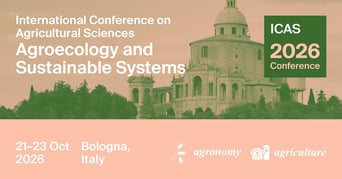- 2.9Impact Factor
- 5.6CiteScore
- 19 daysTime to First Decision
News & Conferences
Latest News & Announcements
Latest Conferences
Propose a Conference Collaboration
Promote and publicise your upcoming conference with MDPI.
All News & Conferences
News & Announcements
Acknowledgment to the Reviewers of Insects in 2025
6 February 2026
News & Announcements
MDPI INSIGHTS: The CEO's Letter #31 - MDPI 30 Years, 500 Journals, UK Summit, Z-Forum Conference, APE
2 February 2026
News & Announcements
Insects | Cover Stories in 2025
26 January 2026
News & Announcements
MDPI’s Newly Launched Journals in December 2025
9 January 2026
News & Announcements
Prof. Dr. Michael J. Sharkey Appointed Section Editor-in-Chief of Section “Insect Systematics, Phylogeny and Evolution” in Insects
29 December 2025
News & Announcements
Insects | Explore the 2024 Special Issues
26 December 2025
News & Announcements
Meet Us at the Plant & Animal Genome Conference 33 (PAG 33), 9–14 January 2026, San Diego, CA, USA
17 December 2025
News & Announcements
Article Layout and Template Revised for Future Volumes
11 December 2025
MDPI Conference
Mark your calendars!
21 - 23 October 2026
News & Announcements
Insects | Highly Cited Review Papers Published in 2023–2024
26 November 2025
News & Announcements
MDPI Launches the Michele Parrinello Award for Pioneering Contributions in Computational Physical Science
6 November 2025
of 18









